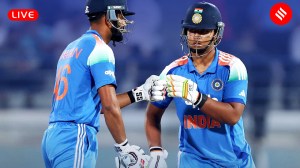Multilateral Development Banks (MDBs) have put in place measures to expand lending by making better use of their balance sheet and attracting additional capital through innovative channels, but the volumes involved — about 30 per cent of current lending volume — fall short of the tripling they need, given their enlarged mandate, the report card of the G20 Expert Group on Strengthening MDBs said.
The ‘G20 Independent Expert Group Report Card on Strengthening MDBs: An Incomplete Grade’ has come after a year of the setting up of the expert group on MDBs under the G20 Indian Presidency that had Fifteenth Finance Commission Chairman NK Singh and former US Treasury secretary Lawrence Summers as co-convenors. The report card said that though every MDB has embarked on reforms, the pace and ambition of implementation falls well short of what was required to deliver on the vision set out by the group.

“Progress has been positive, with a 33 per cent increase in lending capacity and better utilisation of guarantees, the unification of the guarantee platform, and improved use of the balance sheet as per the recommendations of the capital adequacy framework report, optimising the balance sheet. This progress must be seen in the context of our goal to triple capacity. In absolute terms, there has been positive movement. However, relative to the expectations set out in what we refer to as the ‘triple agenda’—aiming for ‘better, bigger, bolder’ goals—there remains significant work to be done,” NK Singh told The Indian Express.
The expert group had outlined a triple mandate for the MDBs for eliminating extreme poverty, inclusive growth and the financing of global public goods involving tripling of the level of financing commitments, and establishing a ‘Global Challenges Funding’ mechanism for ‘Global Public Goods’. The expert group had stressed on the need for MDBs to mobilise more private capital, greater engagement with private sector, stating that private financing worth $740 billion per year would be required to reach overall goals for additional climate and sustainable development goals (SDGs)-related finance, an increase of $500 billion over the 2019 level of sovereign borrowing and private participation in infrastructure.
Each MDB has moved ahead on private sector mobilisation but the numbers and prospects remain a fraction of the $500 billion per year of private finance that was set out in the ‘Triple Agenda’, the report card said. “More priority is being given to reforms to improve the enabling environment for private investment, especially in the context of country platforms. Guarantees, equity and first-loss instruments to de-risk private capital are being expanded in non-sovereign MDB operations. Local currency lending, however, remains underdeveloped, with only a few examples,” it said.
On the group’s recommendation of a tripling of concessional finance channeled through MDBs to the poorest countries, the report card said there are few signs of any meaningful rise. Expanding mandates with insufficient financial resources will not work effectively, the report card said.
“Progress has been far less than expected, particularly in two areas: harnessing private sector capital and increasing private sector involvement. Regarding credible conversations with rating agencies, bringing them together with the private sector, and shifting the multilateral development banks (MDBs) towards a culture that attracts private sector involvement by reducing the perceived risks for private capital through changes to processes and procedures—progress has been slow. This is what we refer to as an ‘incomplete grade,” Singh said.
Story continues below this ad
Changing MDB relationships with the private sector has proven to be “hard and difficult”, the report card said. While noting the improvements on the expanded use of guarantees, the report card pointed out that the aggregate volume of private capital mobilisation — about $70 billion in the last year — demonstrates an incremental approach, not a radical transformation of business models of the MDBs.
The expert group had recommended that the MDBs operate more in sync with developmental priorities of individual nations and co-create multi-year programmes along with pointing out the need for bringing private sector engagement to the centre of MDB operations, and significantly raising MDB financing.
MDBs have introduced innovations to attract hybrid (non-voting) capital, and some member states have expressed a willingness to participate but uptake has been slow, the report card said. MDBs have also increased their climate-related financing. In a joint statement by 10 MDBs in September, they reported $75 billion in climate-related financing commitments in 2023, up from $42 billion in 2019. Of the $75 billion, $50 billion was for mitigation and $25 billion was for adaptation activities.
However, there is limited joint financing among MDBs and differences remain between institutions on how to address sustainability and value-for-money approaches. The MDB heads are looking to harmonise procurement and tendering practices through mutual reliance agreements and a digital co-financing portal for large projects has been set up to facilitate coordination, it said.


































